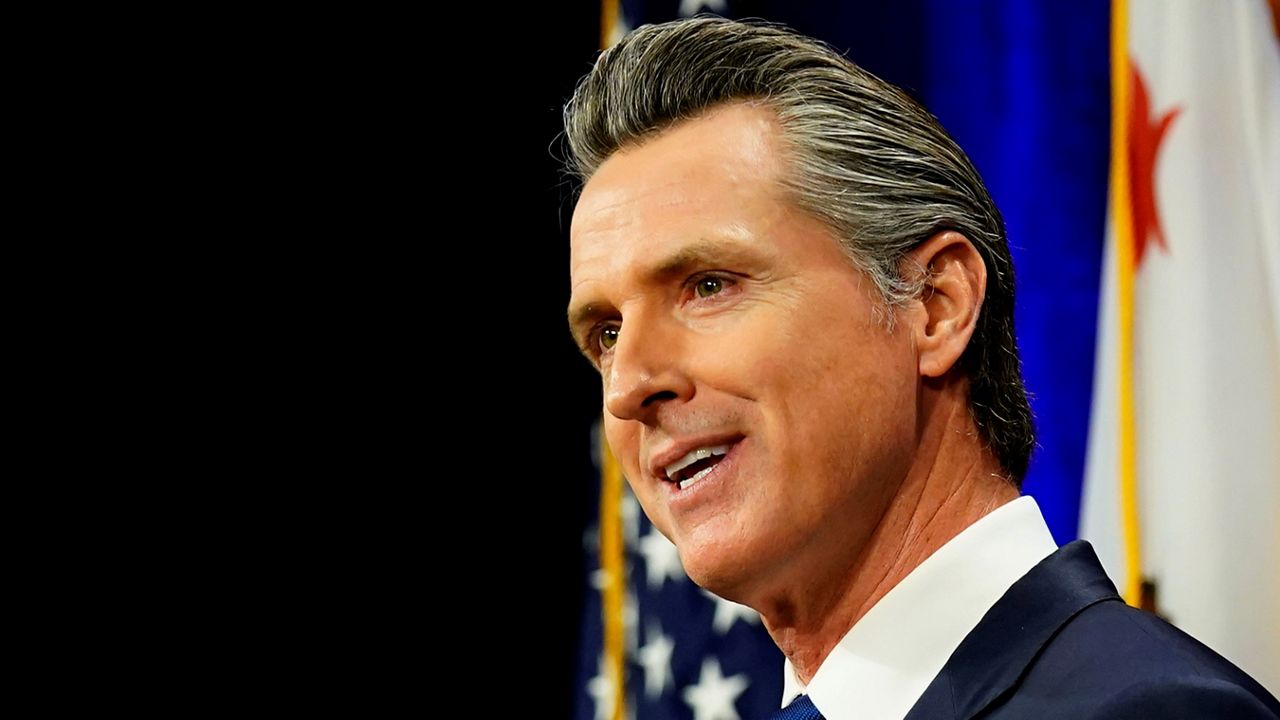SACRAMENTO, Calif. (AP) — California Gov. Gavin Newsom vetoed a bill Monday that he said could have brought “a world of unintended consequences” by allowing Los Angeles, Oakland and San Francisco to set up sites where opioid users could legally inject drugs under supervision.
“The unlimited number of safe injection sites that this bill would authorize — facilities which could exist well into the later part of this decade — could induce a world of unintended consequences,” Newsom said.
While he said they could be helpful, he worried that “if done without a strong plan, they could work against this purpose. ... Worsening drug consumption challenges in these areas is not a risk we can take."
It was one of the most watched and most controversial measures of this legislative session.
Proponents wanted to give people who already use drugs a place to inject them while trained staff stand by to help if they suffer accidental overdoses.
The proposal came amid a spike in overdose deaths amid a national opioid crisis. But opponents said the move in effect would have condoned the use of dangerous drugs.
“Each year this legislation is delayed, more people die of drug overdoses,” said state Sen. Scott Wiener, a Democrat from San Francisco who authored the California legislation.
Newsom had previously said he was open to the idea. But his decision comes as he faces increased national scrutiny as he is perceived as a possible presidential contender, though he has frequently denied any interest in running.
He said he has long supported cutting edge harm reduction strategies, but not without “well-documented, vetted, and thoughtful operational and sustainability plans.”
Newsom ordered his secretary of Health and Human Services to meet with city and county officials to discuss standards and best practices, and said he remains open to the concept once they come back to lawmakers with recommendations for how the sites could be run safely.
Wiener called Newsom's veto “tragic,” and San Francisco Mayor London Breed said the veto by the former mayor of San Francisco is “disappointing.”
Laura Thomas, director of HIV and harm reduction policy at San Francisco AIDS foundation, said supporters provided research and data, and Newsom's call for more study is “disingenuous” and "insulting.”
“We don’t need additional studies or working groups to determine whether safe consumption sites are effective," said Wiener. “These sites are a proven strategy to reduce overdose deaths, pressure on emergency rooms, and public drug use, while expanding access to drug treatment.”
The veto left Republican leaders in the Legislature in the rare position of praising Newsom, a Democrat.
"People struggling with addiction need help, not a legal place to shoot up,” said Senate GOP Leader Scott Wilk, whose members had urged a veto in a letter to Newsom.
“We need to stop enabling criminal acts," added Assembly Republican Leader James Gallagher, who had sent his own letter. "Instead, we should promote policies that will empower people to safely get off the streets and reintegrate into our communities.”
Tracy McCray, president of the San Francisco Police Officers Association, also praised Newsom for blocking what she said would have been “sanctioned drug dens ... creating misery and chaos for the residents and businesses forced to be next to these sites.”
The first two publicly recognized overdose prevention sites in the United States opened in New York City in December and have been credited with intervening in more than 150 overdoses. Rhode Island approved testing similar centers for two years.
More than 2 1/2 times as many San Franciscans died of accidental drug overdoses in 2020 — a record roughly 700 people — than died from COVID-19 that year, Breed said earlier. She cited spiking drug overdose rates in declaring an emergency in the Tenderloin neighborhood in December.
Nationwide, drug overdose deaths increased 28.5% to more than 100,000 during the 12-month period ending in April 2021 over the same period a year earlier, according to the U.S. Centers for Disease Control and Prevention, including about 10,000 Californians.
But opponents highlighted former governor Jerry Brown’s veto of a 2018 bill that would have allowed the sites in San Francisco.
“Enabling illegal and destructive drug use will never work,” wrote Brown, a Democrat. He said the proposal was “all carrot and no stick” because there was no requirement that the user undergo drug treatment.
While there was no requirement in Wiener's bill, supporters said employees at the sites could help users get treatment, while also helping to prevent the spread of HIV and hepatitis infections by providing clean needles. They could also have drug testing kits to check for fentanyl or other contamination.
Supporters and opponents have promoted conflicting data on whether nearly 170 such sites in Australia, Canada and Europe have been successful and whether they have encouraged nearby crime.



